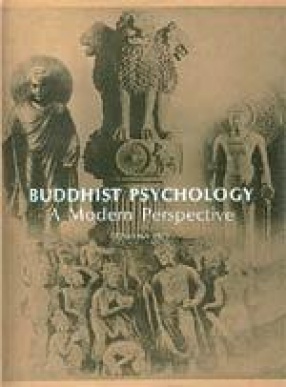Attempts to forge a systematic understanding of human personality did not originate with contemporary psychology, which is about a hundred years old, and may be regarded as a recent version of an endeavour as old as history. In many instances, ancient Eastern systems have been the forerunners, and they have been found to be sophisticated in their observations about human nature, quite apart from their cosmologies and religious beliefs, This book is based on the Pali Tripitaka and related sources, the aim being to provide accurate information about important and enduring issues in the field of Early Buddhist Psychology, and to whet the appetite for more advanced study in this field of interdisciplinary research by suggesting problems and opening tempting vistas. To meet these goals as effectively as possible, knowledge gained from several areas of research is used to complement the early texts. Early Buddhism was an attempt to help man better himself, not by being born in a better world, but by changing himself. Beneath man’s thin veneer of consciousness lies a relatively unchartered realm of mental activity, the nature and function of which the Early Buddhists tried to explore and conceptualize. Their approach is that of a practical and personal discipline, and they offer certain techniques, which affect alterations in body states and consciousness. They focus on human potential for growth and health, and go beyond existing models to emphasize the centrality of consciousness in shaping and enhancing well-being. The book, while explaining these concepts of the Early Buddhist psychology, brings out vividly their contrast with those concepts of modern psychology which are negative and neutral.
For Him Alone
$9.00
$10.00





There are no reviews yet.